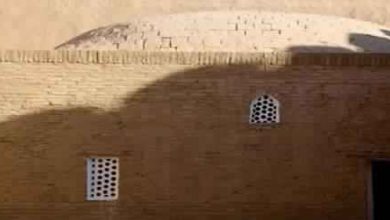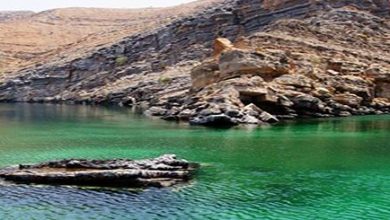KHADIJAH BINT KHUWAYLID [RA]

“Yes,” replied Waraqa. “No one has come with what you have been given without being treated with enmity; and if I were to live until the day when you are turned out, then I would support you with all my might. Let me just feel your back.” So, saying, Waraqa felt between the Prophet’s SAW shoulder-blades and found what he was feeling for: a small round, slightly raised irregularity in the skin. This was yet another of the many signs that Waraqa already knew would indicate the identity of the next prophet after Isa AS.
“This is the Seal of the Prophethood!” he exclaimed. “Now I am certain that you are indeed the Prophet whose coming was foretold in the Torah that was revealed to Musa AS and in the Injil that was revealed to Isa AS. You are indeed the Messenger of Allah, and the being who appeared to you on the mountain was indeed the angel Jibril!”
Khadijah was both overjoyed and awed to find that her understanding of what had happened on the mountain had been confirmed. Not long after this incident, Muhammad SAW was commanded in a subsequent revelation from Allah, through the angel Jibril AS, to call people to worship Allah only, and it was at this point that Khadijah did not hesitate in expressing in public what she had known for certain: “I bear witness that there is no god except Allah,” she said, “and I bear witness that Muhammad is the Messenger of Allah.” Thus her love of her husband had expanded into something greater, being the love of Allah and His Messenger.
In the years that followed, difficult years in which the leaders of the Quraish did everything in their power to stop the Prophet SAW spreading his message, Khadijah was a constant source of help and comfort to Muhammad SAW in the difficulties which he had to face.
It is not known exactly how long they were married for, however piecing together information that they were married for 15 years prior to the first relevation, and that the Year of Sadness (the year in which she passed away) took place in the eighth or ninth year after revelation, they were married for approximately 23 or 24 years. Even though they suffered personal tragedy in the deaths of their sons, and later faced the persecution of the Quraish, their marriage was a happy one. During this time, all of Khadijah’s wealth was spent in the way of Allah, helping to spread the message of her husband, helping to free slaves who had embraced Islam, and helping to feed and shelter the community of Muslims that slowly but surely began to grow in numbers and strength. She freed the Prophet SAW of all labour, so that he could spend his time calling the people towards Allah. She was the mother of his household and the caretaker of his family.
The Quraish were infuriated by the Prophet’s SAW success and did everything in their power to discourage both him and his followers, often inflicting awful tortures on them, but without success. The situation became so bad that the Prophet SAW told some of his followers to go to Abyssinia, where their ruler, the Negus, who was a sincere Christian gave them shelter and protection. Eventually there came a time when, as Waraqa had foretold, Muhammad SAW and his followers -along with all the members of his tribe, the Banu Hashim were driven out of the city of Mecca and forced to camp out in a small ravine in the mountains nearby. This happened long after Waraqa had died, and about six years after that extraordinary night of power in which Muhammad SAW had received the first revelation. There, while their homes lay empty in Mecca, the Muslims were exposed to the bitterly cold nights of winter and the fiery hot days of summer, with very little food and shelter. No one would buy and sell with the Muslims, or allow their sons and daughters to marry any of them. Fortunately those who secretly sympathized with the Muslims would send what food they could to them whenever the chance arose.
During these harsh times, Khadijah remained a loyal and patient companion and wife, often giving him wise and compassionate counsel which reinforced him emotionally. Her support would constantly strengthen him in his mission to spread the Message.
For three years the small Muslim community lived a life of hardship and deprivation, but although they suffered from hunger and thirst, and from exposure to the elements, this was a time in which the hearts of the first Muslims were both purified and also filled with the light of knowledge and wisdom. The Muslims knew that they were following the truth, and so nothing else mattered. Sadly, these long and difficult months left Khadija physically weakened.
Finally the boycott was lifted and the Muslims were allowed to re-enter the city; but the three years of hardship had taken their toll on her health. She spent her last days in the loving care of her husband and daughters. Here was one of the wealthiest women in the Arabian Peninsular, who had spent all she had of her material wealth in the path of Allah that she did not even have a piece of bread in her house when she died.
In some narrations, it was said that in the final moments of her life, angel Jibril AS descended, giving her (through the Messenger SAW) greetings from Allah Himself, with the glad tidings of her palace in jannah.
Khadijah had been the first to publicly accept Muhammad SAW as the Messenger of Allah, and she had never stopped doing all she could to help him. Love and mercy had grown between them, increasing in quality and depth as the years passed by, and not even death could take this love away. The Prophet Muhammad SAW never stopped loving Khadijah, and although he married several more wives in later years and loved them all, it is clear that Khadijah always had a special place in his heart. Indeed whenever Aisha RA, his third wife, heard the Prophet SAW speak of Khadijah, or saw him sending food to Khadijah’s old friends and relatives, she could not help feeling jealous of her, because of the love that the Prophet SAW still had for her.
Once Aisha asked him if Khadijah had been the only woman worthy of his love. The Prophet SAW replied: “She believed in me when no one else did; she accepted Islam when people rejected me; and she helped and comforted me when there was no one else to lend me a helping hand.”
It had been related by Abu Huraira that on one occasion, when Khadijah was still alive, Jibril AS came to the Prophet SAW and said, “O Messenger of Allah, Khadijah is just coming with a bowl of soup (or food or drink) for you. When she comes to you, give her greetings of peace from her Lord and from me, and give her the good news of a palace of jewels in the Garden, where there will be neither any noise nor any tiredness.” Some interpret this as a reflection and reward for the calm and tranquil environment that she herself generated for her husband.
Khadijah was estimated to be around sixty-five years old at the time of her death, three years before Prophet Muhammad’s SAW Hijrah to Medina. The Prophet’s SAW uncle, Abu Talib died the same year. Their deaths would bring great tragedy to the life of Prophet Muhammad SAW as these were two people who provided him great sources of comfort and strength when faced with persecution
However, Muhammad SAW worked to be sure that Khadijah was remembered in the best light, and honored her even after her death. If a gift was sent to Muhammad SAW he would not hesitate to have the gift sent to a woman who was a friend of Khadijah, showing the kindness and compassion that Khadijah exhibited during her life.
What an honour to be a woman chosen to be the first one to believe in the last revelation on earth.
What an honour to be the first beloved wife of the last Prophet.
What an honour to devote your life, your love, your wealth, just to please Allah and to support his Prophet and the Message of Allah, and your husband.
What an honour to have the greetings, not by a human being, but by your own Lord and one of the most highest exalted angel, Angel Jibreel, to deliver those greetings.
What an honour to know who you are, where you’re going, and your status in akhirah.
What an honour to get the news of how your palace will look like in Jannah.
What an honour for a woman, life, death and legacy!
Source:
Ibn Kathir: Wives of the Prophet Muhammad SAW
“Great Women of Islam” by Mahmood Ahmad Ghadanfar
Originally written by the admin of Muslim Footsteps for hadithoftheday.com




